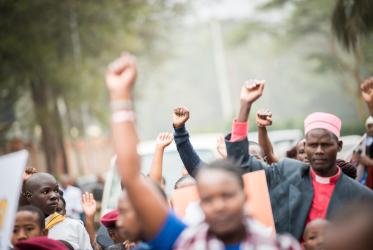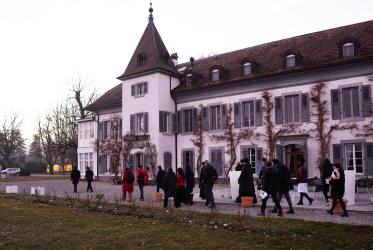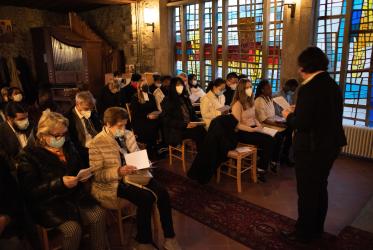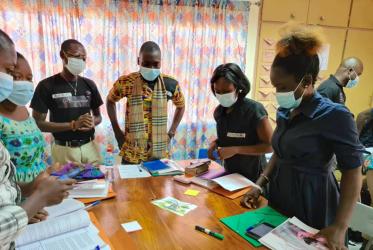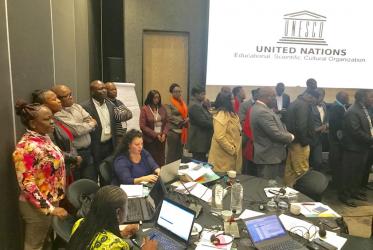Displaying 1 - 20 of 59
Recommended Practices to Combat HIV-Related Stigma
A Guidebook for Local Faith Communities
05 October 2023
Faith Sector Implementation of the Global AIDS Strategy
05 October 2023
Bossey student Carolina Zamorano reflects on study visit to Rome
02 February 2022
Applications open anew for Bossey online course in ecumenism
13 January 2022
WCC mourns passing of Hendrew Lusey-Gekawaku
23 October 2020
Youth leaders: “We will stop at nothing” to end HIV and violence
17 October 2019
Knowledge of gender roles deepens in Togo
03 June 2019
WCC pays tribute to ecumenist pioneer
08 May 2019
Faith and HIV treatment go hand in hand
06 March 2019
On the journey to HIV – bridging gaps, debunking myths
21 February 2019





